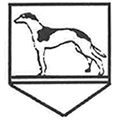History
We teach History at FPS because everyone needs to know where they have come from, and why their lives are as they are. History builds an understanding of a shared past, with knowledge and understanding of events and people who shaped our world, and when those events took place.
The historical skills of enquiry and investigation, using sources as evidence and becoming aware of the veracity and reliability of those sources, is an important foundation to becoming a confident, knowledgeable and successful modern citizen. History enables children to learn how to generate effective and probing questions, and have the skills to seek and find reliable answers.
A good knowledge of History gives you the wisdom to put your own life in a broader context, and know what you might be capable of in the future, by knowing what people have done in the past. Without a knowledge of History, your world is very small.

Understanding why we study History is important too . When asked, Flixton Primary School pupils' responses highlighted the importance of learning from the past, so that history doesn't repeat itself and learning about changes over time and how this can help us in the present and future.
When we study History, we use a variety of skills and explore a range of sources. History is made up of many jigsaw pieces and as young historians at Flixton Primary, it is our job to investigate sources, ask questions, research and much more!

At Flixton Primary School, we have the opportunity to really dig our teeth into History. Take a look at our curriculum map.
The intent, implementation and impact policy for History can also be seen on this page.
Key Historical Vocabulary
We aim to use vocabulary specific to the subject of history. Below, is the main vocabuarly list that we would expect children to use and understand for their specific year group. As the children progress through the school, their bank of vocabulary will extend and deepen.

Subject Specific Vocabulary
If you look through our latest curriculum map in the download section, you will see different areas of study for each year group. Below, you can see the vocabulary that children will be using and focussing on in their specific year group subjects. Similarly to historical vocabuarly, the children's bank of vocab will extend and deepen alongside their understanding.
WW1 Centenary and Armistice Day
To mark such a remarkable period in History, Flixton Primary School, came together to focus, commemorate, emphathise, learn about and learn from the History of the WW1&2. Inspired by Danny Boyle's 'Pages of the Sea', each class spent time remembering.

As part of the importance of marking the Armistice, each child took home a plant with an Armistice themed label designed by Y2. The plants were taken back home, where they had an opportunity to grow. Later on, children were then asked to bring their plants back in, so that they could be planted to mark the Armistice. Many did not return, which sadly reflected the harsh reality of war. A special thanks to Mr Moulton and his helpers for making this happen, along with all the fantastic grounds work opportunities that are provided at FPS.

We felt as a school, because the Centenary was so significant, something more was needed. To show our gratitude, we created a whole school, Flixton Primary School Thank You Poppy. Every child's fingerprint from FPS can be seen under the commemorative and profound poem 'Flanders Fields'. 
Many children were moved and inspired by their learning. Lots had brought their relatives' belongings in and were to share their family's history.
Year One went on their a Memorial Walk locally.


 Flixton Primary School
Flixton Primary School
